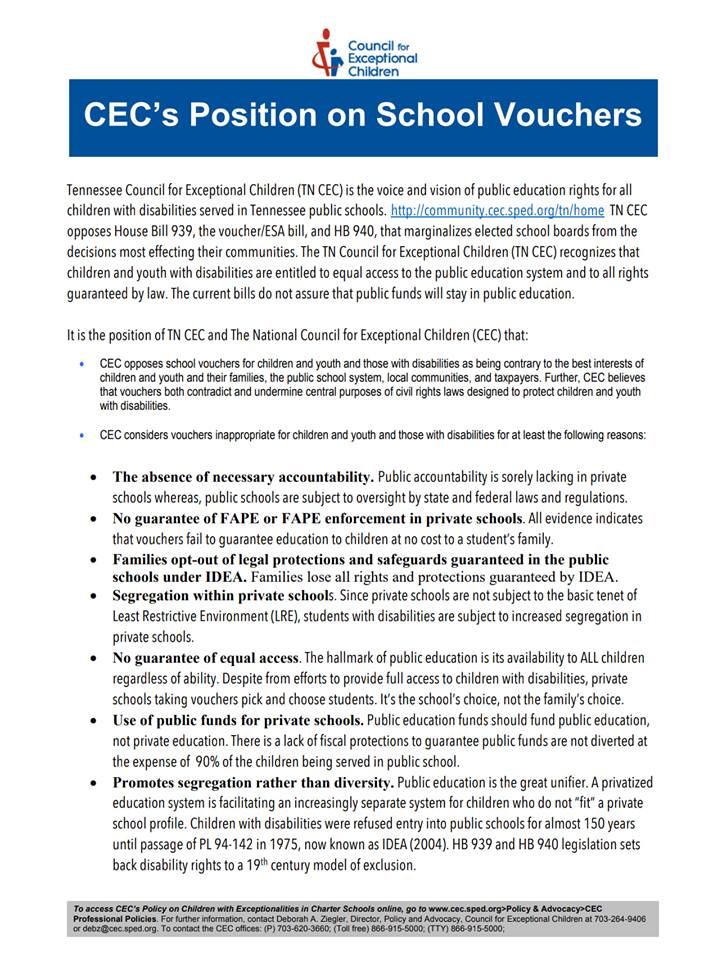In this piece for The Progressive, I detail the persistence of those interests seeking to privatize our public schools — not just in Tennessee, but around the country.
When a popular governor passes a top legislative priority in his first year in office, one might anticipate that the initiative enjoys broad public support. Not so in Tennessee, where Republican Governor Bill Lee secured passage of a school voucher scheme, referred to as Education Savings Accounts. In fact, recent polling suggests only 40 percent of Tennesseans support school vouchers. Five previous attempts to pass some sort of voucher plan have failed, opposed not only by the handful of Democrats in the General Assembly, but also by a significant number of Republicans (mostly representing rural districts).
How did such an unpopular idea become a top priority of a popular governor? Why did the legislature give approval to the use of public money for private schools in 2019 when a bipartisan group of lawmakers had blocked such legislation in the past?
The answer is shockingly simple and unsurprising: money. The details, though, reveal an unrelenting push to dismantle America’s public schools. Yes, this story includes familiar characters like Betsy DeVos and the Koch brothers joining forces with a Tennessee cast to advance their vision for our nation’s schools. That vision: Public money flowing to private schools with little regard for the impact on students. In fact, the evidence is pretty clear—vouchers simply don’t achieve their stated goal of helping kids improve academic outcomes. Tennessee’s plan could result in taking more than $300 million away from local school districts to support private entities.
Prior to 2019, there were five consecutive attempts by voucher advocates—including DeVos’s American Federation for Children—to pass privatization schemes in Tennessee. All five of those attempts were met with defeat. In fact, the losses were so bad that a number of contract lobbyists hired by Team DeVos quit.
Despite these setbacks, the privatizers were undeterred heading into 2019. Their secret: Incoming Governor Bill Lee.
Prior to his election to the state’s highest office, Lee ran his family’s HVAC company, one of the largest in middle Tennessee. He was a reliable contributor to GOP campaigns and also a strong supporter of the Tennessee arm of American Federation for Children. The signs he’d be making an aggressive voucher push were readily apparent with his early staff hires. Both his policy director and his legislative director had been former staffers of pro-voucher groups.
While Lee was clearly in the pocket of DeVos, he’d need help to convince the legislature to pass an unpopular plan that had failed so many times before. Enter new House Speaker Glen Casada. Casada, a vocal supporter of vouchers, seemed likely to give Lee the legislative victory he wanted, and apparently, he was willing to do so at any cost.
At the time the voucher plan reached the house floor, it appeared to be in trouble. Contentious committee debates indicated faltering support. It was unclear the bill had the needed fifty votes to advance. In fact, when the bill was finally voted on, only forty-nine members voted in favor. It appeared vouchers would again be defeated, even with last-minute tweet-support from Donald Trump. Then, Casada made the unprecedented move of holding the vote open for more than thirty minutes while he conducted “conferences” with members of his caucus who had been recorded as voting against the measure. Finally, Knox County’s Jason Zachary switched his vote and the bill passed, 50-48. Zachary indicated he’d been assured Knox County would be taken out of the final bill.
Zachary’s comment was a familiar refrain among lawmakers who had campaigned in opposition to vouchers but voted in favor. Time and again, rural Republican legislators would announce to constituents that while vouchers were “not right” for their districts, the bill would only apply to Memphis and Nashville. Interestingly, the legislative delegations from those two cities were strong in their opposition to vouchers.
Casada’s strong-arm tactics weren’t the only tools being used to sway votes. Pro-voucher groups backed by funds from Americans for Prosperity ran Facebook ads attacking Republican lawmakers who voted against voucher legislation during the committee process. The ads included text that listed the lawmaker’s name and said they “failed to stand with Donald Trump and Gov. Bill Lee, siding against Tennessee families and their right to access a high-quality public education.”
The FBI is now investigating the house vote that led to the passage of the voucher bill. There’s also an FBI investigation into the campaign finances of the senate sponsor of the bill. And Casada? He’s announced his resignation due to a scandal that earned the attention of John Oliver.
But no matter the outcome of these investigations, backers of school privatization can claim public policy victory. It took a new governor, an unscrupulous house speaker, and untold dark money dollars, but after six attempts, Tennessee now has a school voucher plan—one that could shift more than $300 million away from public schools in the state.
The lesson from Tennessee is clear: Advocates for public education face privatization forces with vast resources and patience. The fight is going to be a long one.
Read this story and more about the fight for America’s public schools at The Progressive.
For more on education politics and policy in Tennessee, follow @TNEdReport
Your support makes reporting education news possible.





